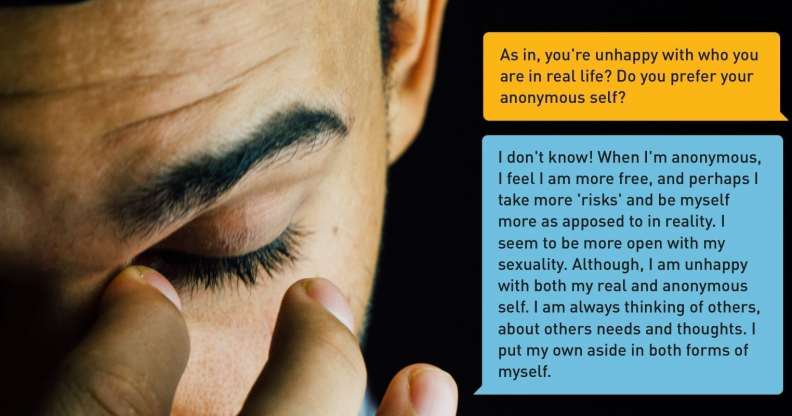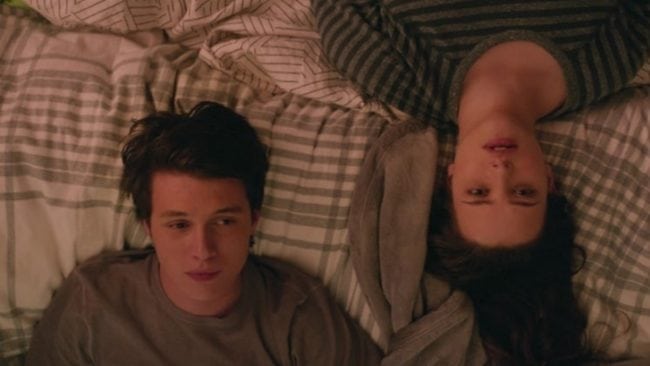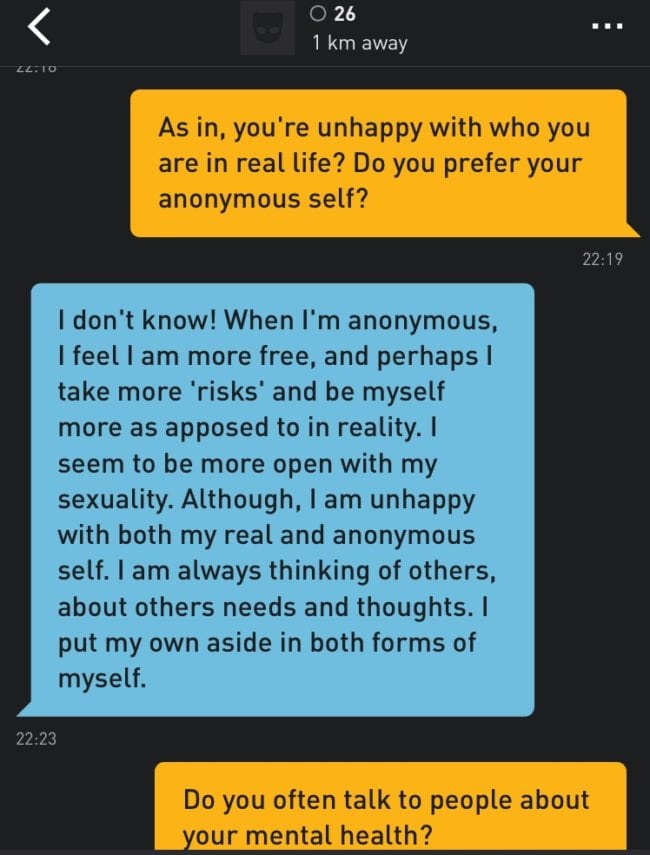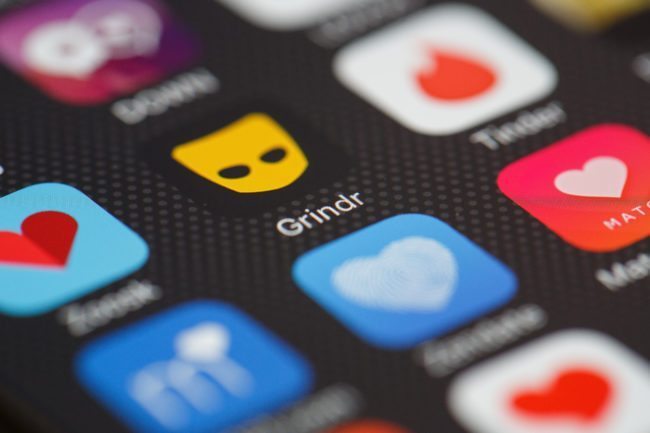Gay people are turning to strangers on Grindr for mental health support instead of doctors

As a decline in mental health funding takes its toll on LGBT+ people, some members of the community are turning to anonymous strangers online for help.
In January, the independent charity The King’s Fund found that “since 2012/13, funding for mental health trusts has increased by just 5.6 percent compared to an increase of 16.8 percent for acute hospitals.”
There is a lack of prioritisation for mental health services across the UK and funding is not increasing at the same rate as it is for other kinds of care.
Compounding this, the London Assembly reported last year that “around 40 percent of LGBT+ people experience a mental health issue, compared to 25 percent of the wider population.”
The lack of prioritisation in mental health funding is likely to have an unfair impact on LGBT+ people across the UK, perhaps leading to them seeking help in more clandestine ways online.
The hit movie Love, Simon recently showed us the power of online anonymity in the LGBT+ community but this potential extends beyond dating and into mental health support.
I launched a research project called “Finding Simon” in order to document not only my story but the story of hundreds of other anonymous strangers and their struggle to speak about their mental health.

A scene from Love, Simon (20th Century Fox)
The interview process so far has taken place through Grindr, anonymous chat rooms and even Reddit. Everyone interviewed maintains their anonymity throughout and the project has thrown up some harrowing truths about the state of LGBT+ mental healthcare.
Finding Simon
When I was 16 I began to struggle with depression without realising it. The toxic masculinity I grew up with meant that I had repressed a lot of the emotional fluency I needed to speak about my feelings.
I remember when my grandad died I was about to go into a screening of Les Miserables. I got the news over the phone from my mum and I stoically went in and watched the film.
I was overwhelmed with grief, but I didn’t have to tools I needed to understand the complexity of my emotion and my only instinct was to try and instantly hide it. I still struggle to watch the film to this day.
Instead of speaking, I began to type out my feelings to a near-anonymous stranger I met in a chat room called Simon. It was one of the most emotionally intimate friendships of my life even though I didn’t know much more than his name. Over five years, I never met Simon but he was the only person I learned to speak to as the anonymity protected me from the stigma of my depression.
After five years, I found myself bleaching my undergraduate kitchen at 6am in the morning, having been there for about eight hours. At the click of a button I severed all ties with Simon. If that crutch wasn’t there it would force me to get professional help, I thought.
He probably saved my life, but also prolonged my reluctance to get professional help because this online world was just enough to keep me going without giving me a proper support strategy. Those fleeting moments of connection with Simon were comforting but as I returned back to reality, I could feel the craving for the next time I would be able to return to my anonymous digital world.
Professionals
One anonymous man on Grindr tells me, “I feel like when I’m anonymous, or online, I can be myself more. I also have anxiety, so I worry about what people think of me and how they see me.”
This man openly uses Grindr as a platform for being honest about his mental health and sexuality, where stigma doesn’t allow him to talk about them in reality. It is common for isolated young LGBT+ people to find their community online when they don’t find it in their immediate vicinity and maybe this is where our dependance on the online world begins.
“I feel I am not living as my true self,” he tells me. “I am unhappy with both my real and anonymous self.”

One of the messages I received. (Grindr)
He is unable to express himself in reality and although the anonymity offers him temporary expression, he doesn’t find lasting solace there either. “It’s partly because of my career. I look after people, so I don’t want the stigma,” he says.
Incidentally, the man works in healthcare, but finds that he cannot access help within the very system he works in.
If mental health professionals are slowly being replaced by Grindr, there are two options. We can either ensure mental health funding is prioritised, or we need to see online platforms like Grindr and Twitter take responsibility for their users’ mental health.
Beyond the Binary
In the commodity culture of the 21st century, the immediacy of online connections can sometimes prove essential.
In an anonymous website submission, a trans man tells me, “I deal with anxiety, depression, and borderline personality disorder, all of which have been strained through my identity crisis / gender dysphoria. It was through using Tumblr and Twitter as a young teen where I discovered that habits and behaviours of mine were not commonplace, but were not just ‘me’ things.”
Vulnerable members of the LGBT+ community are gaining important insights into their psychology, not from professionals, but from anonymous strangers online.

Grindr app (Leon Neal/Getty)
The trans man goes on to say that “whenever I am struggling mentally, the person I talk to is someone I have never met, who lives in New York. Just recently he talked me out of suicide through hours of Instagram DMs.”
Though these online friendships cannot offer sustained help for a lot of people, perhaps they offer just the right amount of crisis intervention for others.
Responsibility
Through all of the interviews there is a general consensus that online anonymity does allow a greater freedom of expression for LGBT+ people to talk about their mental health. But despite the benefits, it is incredibly lonely.
Anonymity doesn’t allow you to fully connect with another person because only a fragment of you is present.as evidenced by some of the people I spoke to, it does allow a temporary reprieve which could save a life.
Yet, in the absence of a prioritisation of mental healthcare, this form of digital backstreet therapy does allow a temporary reprieve which could save a life.
However, this doesn’t forego the need for legitimate medical services to step it up. The charity Stonewall reports that “nearly half (48 percent) of trans people under 26 said they had attempted suicide.”
I survived my experience with depression, thanks to Simon, but some LGBT+ people don’t.
If you are in immediate danger of harm please call 999. The charity MIND have specific support for LGBT+ people here.

